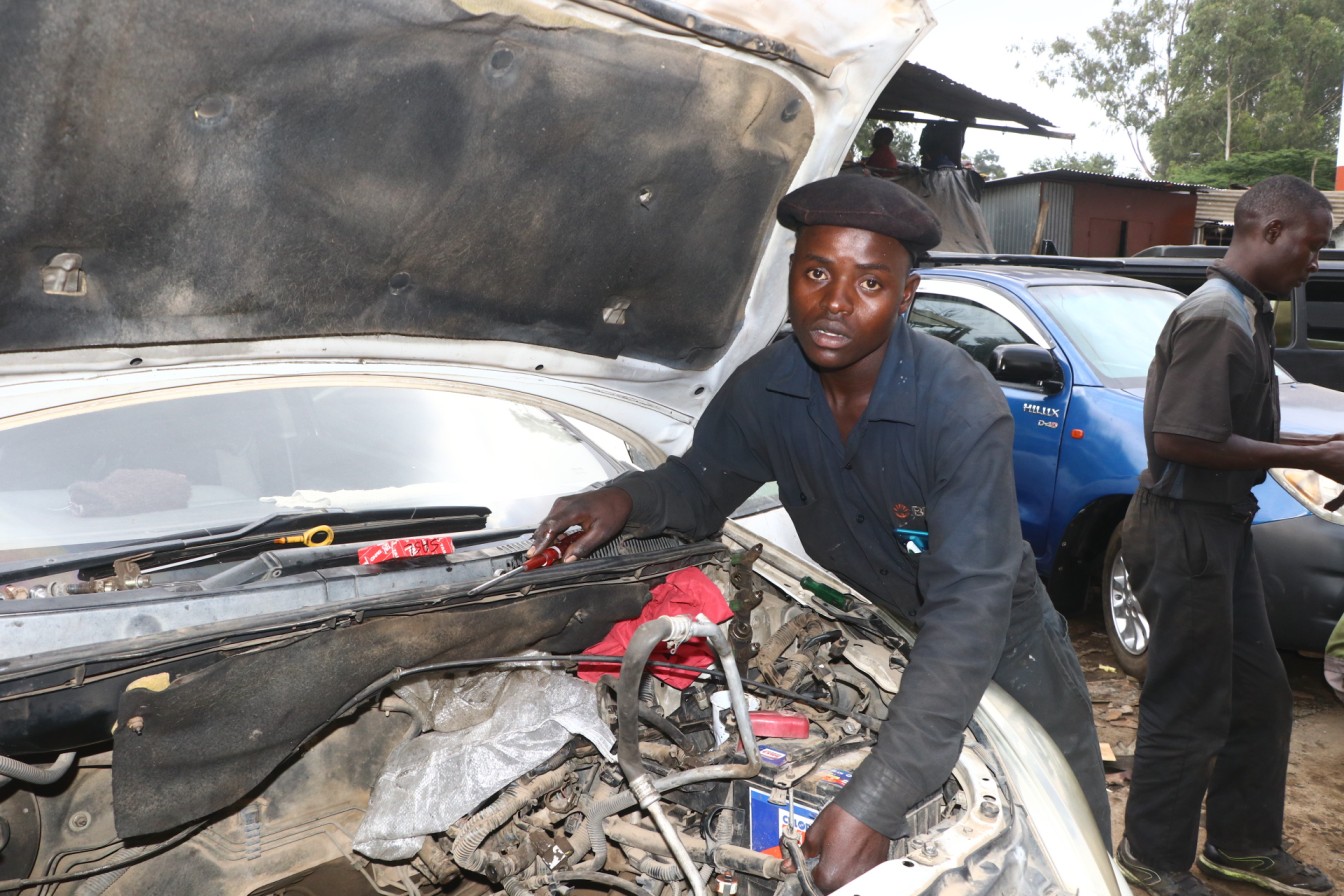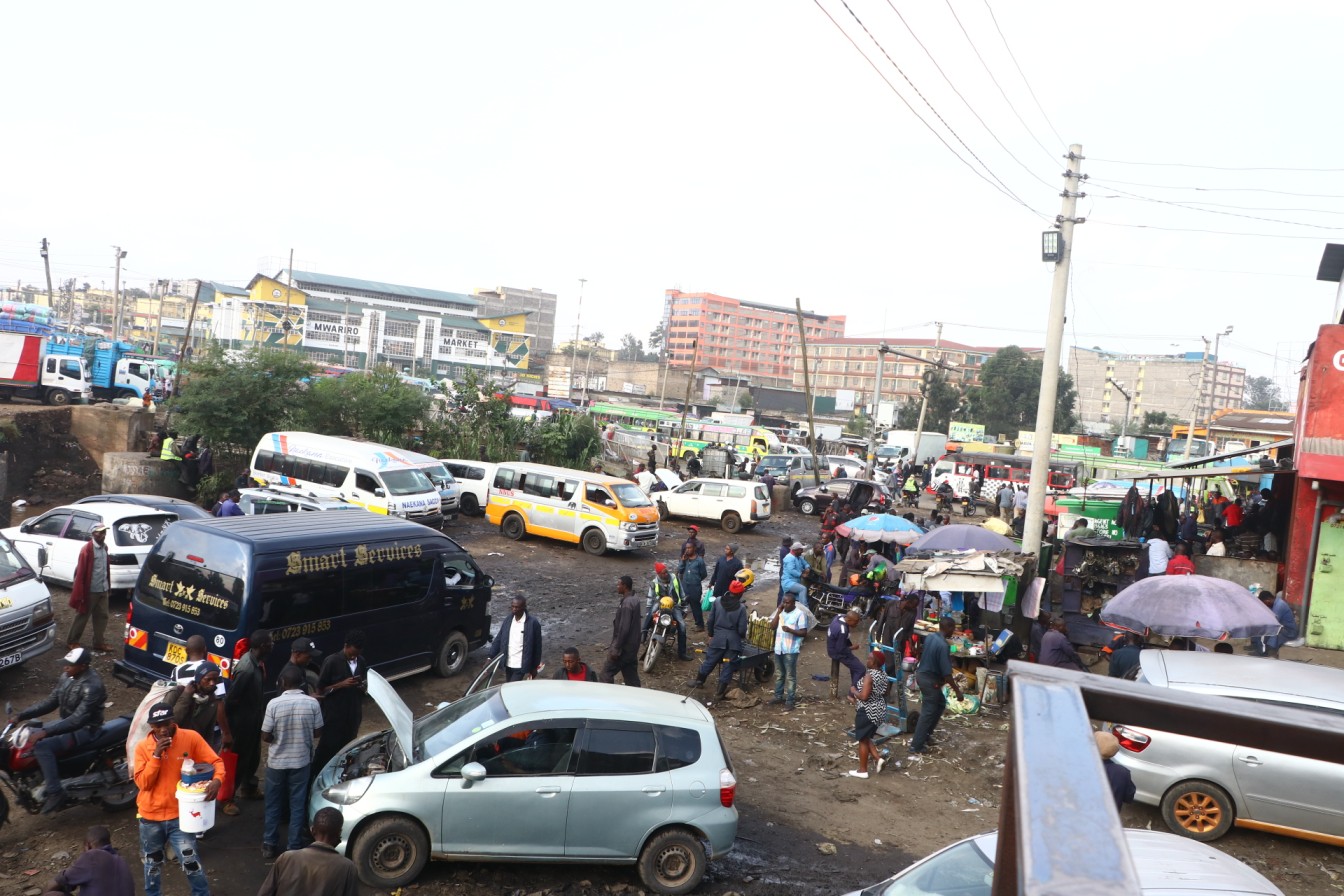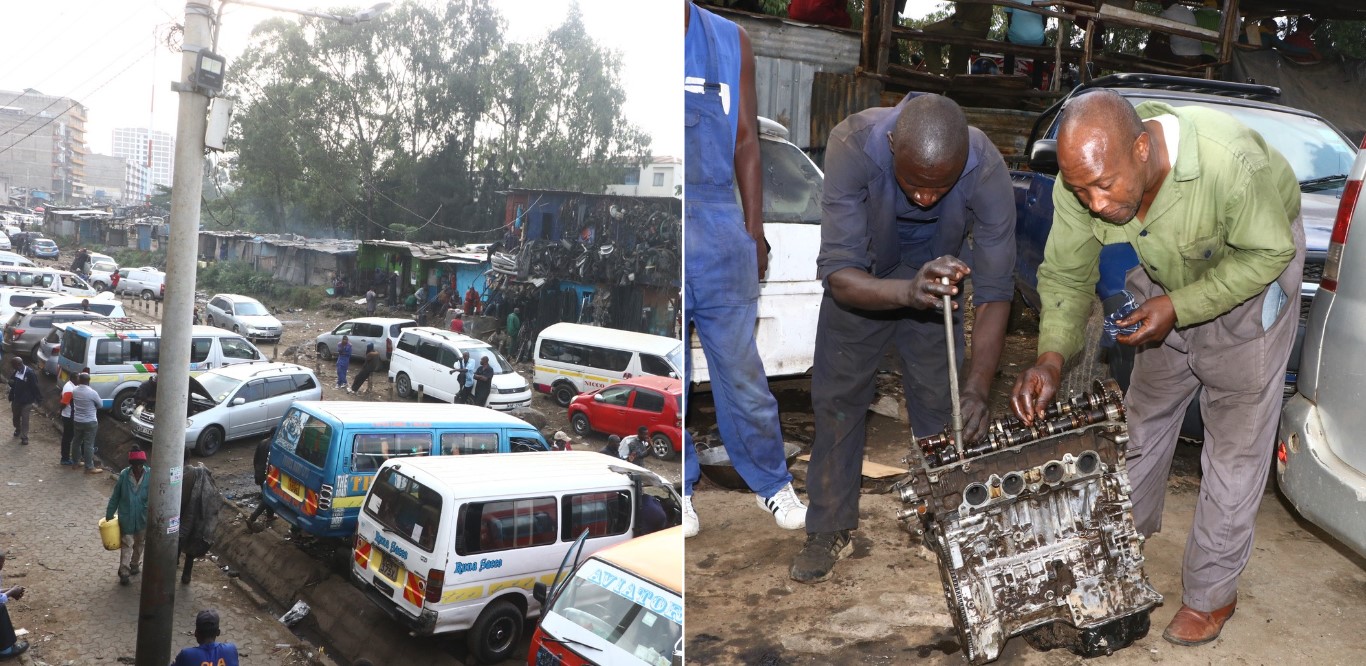Grogan garages: Nairobi mechanics’ economic hub that has thrived since World War II

The defunct Nairobi Metropolitan Services had said the mechanics would be relocated to Thika Road to pave the way for a recreational park.
Around Nairobi’s downtown Kirinyaga Road is a large open-air garage, usually noisy and dusty, where many earn a living as mechanics and spare parts dealers.
Many know it by its alternative name, Grogan, derived from a white settler, Ewart Grogan, who bought the huge piece of land between what is now Kirinyaga Road and River Road, next to the Nairobi River. Grogan left the country in 1910, but his name lingers to date.
More To Read
- Tear gas, running battles rock Kariobangi North as rival groups clash during Gachagua church visit
- High-rise living in Nairobi’s Pipeline estate is stressful: How men and women cope
- Ruto announces plans to dual key highways nationwide
- Nairobi, Kiambu lead Kenya’s insurance uptake as rural counties lag
- Motor vehicle insurance tops fraud cases in Kenya - IRA report
- Kenya’s urban slum schools: Why access doesn’t guarantee better learning outcomes
Grogan was an English explorer, politician, and entrepreneur who claimed to have walked the length of Africa, from Cape Town to Cairo.
Together with his wife Gertrude, he arrived in Kenya in 1904, making his way inland from Mombasa to Nairobi, swiftly becoming a leading figure in the Kenyan settler community and a key player in the economic development of the country.
He initially made several real estate purchases, including the Cross estate and the Manse estate, on which he built his famous Chiromo house.
He expanded his business interests in Kenya, both before and after World War I, as well as completing the railway line to his logging concession. He subsequently sunk a large portion of his wealth into building the first deep-water harbour in Mombasa.
On the outbreak of World War II, Grogan, who was now in his 60s, immediately reported to Nairobi to General Dickinson. He was appointed the Belgian liaison officer and carried out reconnaissance across the Congolese border. Later in the war, he was promoted to Lieutenant-Colonel and put in charge of three prisoner-of-war camps in Gilgil and Nairobi.
After the war, Grogan returned to Taveta, living in Grogan’s Castle, the large house he built on a hill overlooking the area. In 1943, his wife died of a heart attack in Nairobi. Grogan, seeking a fitting memorial for her, founded the Gertrude’s Garden Children's Hospital.
Grogan was involved in politics all his life in Kenya, serving on the Colonial Association and the legislative council. He took an interest in the advancement and education of indigenous Africans, believing that “the road of advancement must be open to all Africans," and only then could his vision of a “reasonable and decent society in Africa” be fulfilled.
He died in South Africa in 1967.
But his name remains etched in the history of Kenya’s capital, thanks to the thriving garages in the popular Grogan area.
The area is the huge piece of land that Grogan bought for just 100 pounds, believing that Nairobi’s future would revolve around it.
He was not wrong, as many people from the city and from across the country who visit Nairobi bring their vehicles here for repairs.
When The Eastleigh Voice toured Grogan, the mechanics spoke of their toil and contribution to Kenya’s economy. But they said this has not attracted the attention of both the county and national governments.
We found Edwin Omollo testing a client’s car battery. He said he has been earning a living at Grogan for the last five years.
 Mechanics operate at Grogan in downtown Nairobi City. (Photo: Barack Oduor)
Mechanics operate at Grogan in downtown Nairobi City. (Photo: Barack Oduor)Mechanics operate at Grogan in downtown Nairobi City. (Photo: Barack Oduor)
“When I finished high school, I came here and learned mechanics, and it has proved a worthy venture for me and my family,” said Omollo.
But what worries Omollo is the possibility of one day being evicted from Grogan. This is because the area where the mechanics operate has been at the centre of a bitter ownership dispute.
The roadside garages at Grogan started when World War II mechanics were dumped here after the war, creating an economic hub where over 6,000 Kenyans, including mechanics, spare parts traders, food vendors, hawkers, and car wash operators, earn a living.
When the defunct Nairobi Metropolitan Services announced that the mechanics would be relocated to Thika Road to pave the way for a recreational park, it did not go down well with them.
Speaking to The Eastleigh Voice, Peter Mwaniki, another mechanic, said the county government should improve their working conditions, but not displace them because they do not have alternative working spaces.
“I wish the government could listen to us. This has been our home for many years, our source of livelihood. Taking us to Thika Road is crippling our businesses because it’s far from the city centre, which is densely populated. Beautification is not going to put food on the table, it’s going to rob us of our jobs,” said Mwaniki, who has operated at Grogan for over 30 years.
Now 56, Mwaniki, who came to Grogan as a young man, said he finds it difficult to let go of his source of living.
“The little money I get from here is what has housed, fed, and educated my children. If we are ordered to move out today, I don’t know how I will survive.”
The ageing mechanic explains that his parents could not take him to school, so his uncle brought him to the city in the 1980s to look for a job.
“We started on Kijabe Street, then they brought us here, and now they are telling us to move out again. The name ‘Girogoni’ is what brings us clients, and if you take us somewhere else, you will have effectively destroyed our business,” said Mwaniki.
Another mechanic, Boniface Karanja Mwangi, 50, said the government should consider implementing policies that favour them, adding that the proposed motor vehicle circulation tax in the Finance Bill 2024 should be reconsidered.
“The government seems to have neglected us. They should strive to uplift us instead of coming up with proposals that will eventually destroy our businesses,” said Mwangi.
 The roadside garages at Grogan started when World War II mechanics were dumped at the location after the war. (Photo: Barack Oduor)
The roadside garages at Grogan started when World War II mechanics were dumped at the location after the war. (Photo: Barack Oduor)The roadside garages at Grogan started when World War II mechanics were dumped at the location after the war. (Photo: Barack Oduor)
Among the reasons why there have been concerted efforts to eject the mechanics from Grogan is the continued pollution of the river that passes right next to their garages.
The mechanics want the county government to build structures where they can operate as their population keeps growing.
“They should be building a field for the jua kali sector every five years because the population keeps increasing. Today, we even have graduates working as mechanics. This trade should be taken seriously,” said Mwangi.
Mairura Omwenga, the chairman of the Town and County Planners Association of Kenya, said developing a recreational park along the Nairobi River and Kirinyaga Road and relocating the mechanics requires “an integrated and participatory approach where all affected persons and parties are given a chance to be heard and the needs of all parties are taken into account.”
“Public participation is a requirement under the Kenya Constitution. It must be clear where the mechanics will be relocated to so that jobs are not lost,” said Omwenga.
But the possibility of Grogan garages moving to Thika Road remains uncertain after Governor Sakaja said in January he had handed over all NMS projects to the presidency.
"What we agreed during the summit of the Council of Governors and the President was that all those pending NMS projects are domiciled under the executive order of the presidency, where NMS was domiciled," said Sakaja.
Sakaja noted that it is the Office of the President that will pay for and complete the pending projects. NMS was retired President Uhuru Kenyatta’s flagship project that sought to upgrade the capital city after years of neglect.
Top Stories Today











































